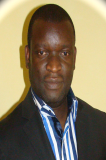Published on December 26, 2011
The secularism or “laïcité” in French, is the union of three principles: The liberty of conscience, the equal treatment of all citizens irrespective of their beliefs, and the idea that the law should have no other objective than the common good. Like in other countries, the Democratic Republic of Congo (DRC) is governed by a number of texts, the most basic of them being the Constitution. Article 1 of the constitution of the DRC declares that the state is independent, sovereign, indivisible and secular. While the constitutional provisions determine and assure the freedom to choose one’s religious affiliation, the separation of religion and state in DRC is a real challenge.
As per the decree issued on 5 July 1948, couples who contracted an exclusively religious marriage could get it recognised officially by fulfilling the necessary formalities, and obtain a legal status for their previously contracted religious marriage. Since 1997, the family code through its article 330 has emphasised the civil character of marriage.
Henceforth, the code specified, purely religious marriages would not be recognised by Congolese law. This step was taken keeping in view the principle of separation of Religion and State: The DRC being a secular state, it was necessary to dissociate the official rules concerning marriage, and the rules formulated in this regard by religious groups. Unfortunately, in practice, some Churches continue to celebrate exclusively religious weddings. Worse still, for the past several years, the proliferation of sects in Congolese society has been increasing, resulting in several negative developments. Many matrimonial homes are being destroyed because of revelations about some clergymen’s activities. Adherents are being cheated and divine authority is frequently invoked for economic, financial and political ends.
Religious inteference in politics
Since the official end to the war in the DRC, and the setting up of a transitional government in 2003, the Church has once again taken on itself the task of being the moral guardian of the political powers. Organisations like the National Episcopal Conference of Congo (Cenco) and the Ecumenical Council of Congo (COE) today play a definitive role in the political affairs of the DRC. They invoke their supposed moral and political authority and claim that they are working within the framework of their institutions which they say have social and political responsibilities. They claim to be interlocutors for the general public – if not indispensable partners – vis a vis their interaction with the political authorities.
The Churches affirm that they respect the principle of separation of the temporal and the spiritual as well as the secular nature of the state, while at the same time remaining an important actor in the nation’s political life. They keep a watch on the defects and the deficiencies of the State in the social, educational and economic sectors. All this indicates how the Church implicates itself in political and public affairs. As a consequence, several institutions are guided, or led, either directly or indirectly, by Church officials or their nominees. The former and current National Independent Electoral Commission has given the example.
The future of secularism in the DRC
The Constitution proclaims the secular character of the DRC. But unfortunately, this Constitution curiously appears to be contrary to the very values and principles that it intends to promote. In fact, the Preamble as well as Article 74 of the Constitution make explicit reference to God.
On the one hand, the people of Congo are to declare their responsibility “before God, the Nation, Africa and the World”; and any Congolese elected President of the Republic is expected to take the oath of office “solemnly in the name of God and the Nation” (article 74). On the other hand, this same draft Constitution’s 1st Article provides that “The DRC is a state governed by law, democratic and laic, and that all persons have the freedom of thought, conscience and religion”. “Every person has the right to manifest his religion or his convictions, subject to respect for the law, for public order, for morality and for the rights of the others” (article 22).
Reading these different provisions in the constitution, one notes a forced marriage between the noble idea of constructing the Republic around the concept of secularism with the obligation for all future presidents of the Republic to accept their office in the name of God.
This imposition of God on all Congolese leaves one perplexed. Such a step is injurious to the fundamental right of all persons to believe or not to believe. Even if we were to concede that the majority of the population is pious, it is an undisputable fact that not all Congolese are believers; amongst them we also find non-believers, agnostics, atheists etc. This, from the perspective of Human Rights and Secularism is discriminatory.
A secular regime ought to, ipso facto, imply that religion or faith should cease to be a tool or a criterion in the hands of the administration. The proclamation of the principle of secularism ought to, in principle, bring in a clear distinction between political matters and religious beliefs, in order to render to all citizens the freedoms of thought, conscience and religion guaranteed by the draft constitution.
Secularism proclaimed but not practiced
Secularism in the Democratic Republic of Congo appears to be more a theoretical pursuit than a practical one. Even if it exists in legal texts, it is not encountered in the daily life of the Congolese and one could go to the extent of saying that secular culture is non-existent in the country. Even if the political slogans affirm that ‘the DRC is a Secular country’ and that ‘There is no State religion’.
The Author

Dr. Yav Joseph is a Professor of Law at the University of Lubumbashi, a Legal practitioner (Attorney at Law) and International Consultant based in the Democratic Republic of Congo (DRC).